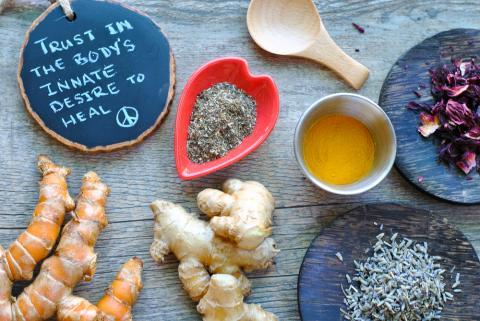
Many people experience anxiety, sometimes on a daily basis regarding work, relationships, school, or other factors. For those who suffer from Generalized Anxiety Disorder (GAD), ranging from mild to severe, daily tasks can be paralyzing. Dr. Weil explains GAD as “chronic and exaggerated worry and tension, even though nothing seems to provoke it.” Those who suffer from an anxiety disorder often anticipate events going poorly long before the event happens or even if it’s likely to go wrong. Others wake up feeling tense and anxious before even leaving the bed.
Unfortunately, living in a constant state of fight-or-flight has several downsides: a weakened immune system (from constant taxation), insomnia, headaches, irritability, muscle tension, excessive worry, and nausea. For some, excessive anxiety can lead to overeating or undereating, which can cause weight gain or issues associated with a lack of calories.
Working with a therapist to discuss your issues is a great place to start. Outside of therapy, however, many people assume that the only solution to anxiety is taking anti-anxiety medication. While this can work for some, it’s important to be aware of the potential side effects. Several of the most common anti-anxiety medications include benzodiazepines, like Xanax; these medications can have a calming effect, but also are highly addictive, with an increased risk of dementia and respiratory issues. This review, published in April of 2000, suggests that benzodiazepines are associated with an increased risk for depression and suicidal ideations. Additionally, many people on these medications become tolerant to the drug after a short while, which means that the efficacy of the drug decreases; symptoms that were once quelled reappear unless a stronger and stronger dose is administered. Furthermore, many people experienced withdrawal symptoms that are very similar to symptoms of anxiety. Medication can be life changing for some, but life altering for others; as such, it’s worth being aware of the additional options, most of which come without side effects.
1. Eat the rainbow
A 2014 paper published in the Medicine Journal, Natural, notes that GAD can be exacerbated by several issues. These include nutrient deficiencies, food intolerances, chronic distress, caffeine, alcohol and drug use, childhood emotional neglect or post-traumatic stress disorder, and environmental factors. Nutrient deficiencies may be one of the easiest to tackle with answers potentially as close as taking a blood test or working with a nutritionist to fill in the gaps in your diet.
Research from Harvard University, published in 2016, suggests focusing on eating magnesium-rich foods like spinach and Swiss chard, and zinc-rich foods like oysters, cashews, and egg yolks. Foods high in omega-3 fatty acids, like wild-caught salmon (or taking an omega-3 supplement) can be helpful. Additionally, recent research suggests a relation between consuming foods high in probiotics, like kombucha, kefir, sauerkraut, and kimchi. Another 2014 study from Current Neuropharmacology found a link between oxidative stress and neuropsychiatric disorders, like anxiety, suggesting that increasing antioxidants intake can be beneficial. Aim to eat the rainbow, focusing on brightly colored fruits and vegetables—especially if they’re free of pesticides.
2. Try some supplements
Supplements aren’t always a cure-all, but they can be helpful in supplying the body with needed nutrients. Some amino acids are associated with a decrease in anxiety symptoms, like lysine and arginine. Additionally, the amino acid l-theanine has been found to increase dopamine and serotonin, as this comprehensive report explains. Increasing one’s green tea intake can aid in increasing l-theanine, too.
Several adaptogenic herbs and essential oils alike can aid in reducing anxiety symptoms. Ashwaghanda is frequently recommended, especially to those who struggle with agoraphobia—the fear of being in open or crowded locations. Kava, known to have a numbing effect in the mouth when swallowed, can also work as a calming agent.
3. Create calm
For a variety of reasons, not everyone has the ability or luxury to create a calming space in their home, but for those who can, this can work great. Dedicate a space to focus on your breath, your thoughts, and how you can ground better. This can be as easy as rolling out a yoga mat and lighting a candle, or as extravagant as painting a room a calm color (like soft blue or lavender), plugging in an essential oil diffuser, and carving out a designated relaxation time. Additional activities like hot baths, regularly scheduled massages, yoga classes, journaling, dog walks, and consistent talk therapy can also help to reduce symptoms of anxiety.
Do you struggle with GAD? Do you practice any holistic remedies to manage your anxiety? Let us know in the comments below!








